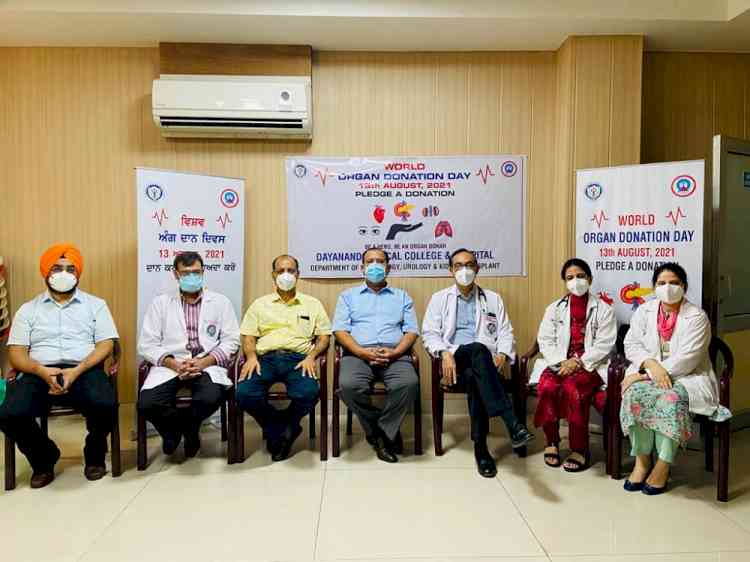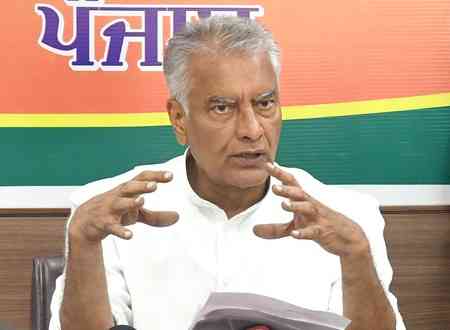World Organ Donation Day observed at DMCH
Medical Experts shared few facts about organ donation which everyone must know

Ludhiana: World Organ Donation Day is observed on August 13th every year to spread awareness about the importance of organ donation. Department of Nephrology, Urology & Transplantation of DMCH observed World Organ Donation Day today by conducting an awareness talk in the seminar room and by displaying various informative printing materials at various locations of the hospital.
Prem Kumar Gupta Secretary DMCH Managing Society lauded the efforts of respective departments to organize this event and said that the aim of this day is to motivate the public to take a pledge to donate organs after death and to spread awareness about the importance of organ donation.
In his message, Principal Dr Sandeep Puri said that Organ Donation is donating a donor's organs like heart, liver, kidneys, intestines, lungs, and pancreas, after the donor dies, for the purpose of transplanting them into another person who is in need of an organ. The organ donor can play a big role in saving others’ life
Dr Sandeep Sharma Professor & Head Department of Urology said that one cadaveric (brain-dead) donor can live on through several lives by donating his organs but there are myths and fears in peoples’ minds about organ donation. Dr Sharma urged the public to take pledge for this and said that organ donation is one of the most impactful things you can ever do, and there are patients who need you today.
Dr Ravi Angral Senior Consultant, Department of Kidney transplant and Dr Vikas Makkar Professor & Head Department of Nephrology shared few facts about organ donation which everyone must know.
• There is no defined age for organ donation but it is based on strict medical criteria.
• In the case of natural death tissues of cornea, heart valves, bone and skin can be donated whereas other vital organs like heart, liver, intestines, kidneys, lungs, and pancreas can only be donated in the case of brain death.
• After organ failure, vital organs like heart, liver, intestines, kidneys, lungs and pancreas can be transplanted into the patient to help the recipient lead a normal life.
• If someone younger than the age of 18 wants to donate an organ then he or she must have an agreement of parents or guardian.
• Anyone can be an organ donor irrespective of age, caste, religion, community etc.


 cityairnews
cityairnews 










